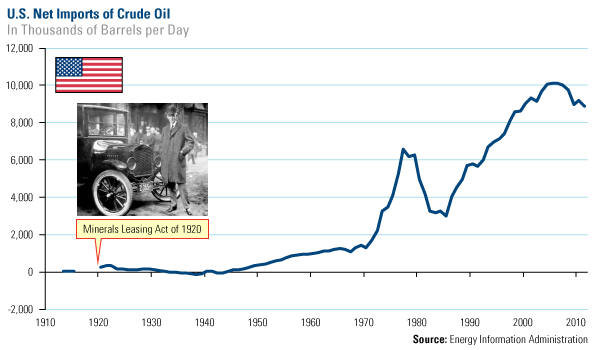
IPFS News Link • Energy
A Century-Old Rule Is Keeping The US From Becoming A Dominant Force In Global Oil
• Business InsiderYet century-old legislation may be the biggest obstacle to the U.S. becoming a card carrying member of OPEC. Around the time when Henry Ford was selling his Model T to millions of Americans, the government passed the Minerals Leasing Act of 1920, dictating that all U.S. crude exports must get approval from the government before proceeding. At the time, the country had net imports of about 300,000 barrels of oil a day.

Since the 1940s, the U.S. hasn’t had to worry about what to do with excess barrels of oil. With the rising use of oil, the country increasingly consumed more of the commodity than it produced. However, over the years, certain types of exports have been allowed, including exports to Canada (not including the crude from the Trans-Alaska Pipeline System, which has other restrictions), exports from Alaska’s Cook Inlet, re-exports of foreign origin crude, and exports made under international agreements, says Raymond James.
But other exports are only permitted on a case-by-case basis as they are more dependent on what the government believes is in the nation’s best interest. Beyond what’s written in the rule books, “there are political overtones to anything that entails presidential discretion,” says Raymond James. The firm compares potential oil exports in the future to the experience of natural gas exports today, noting that “utility and manufacturing trade groups are actively lobbying against U.S. liquefied natural gas export permits because, of course, any such exports would incrementally raise domestic gas prices.”
In the spirit of economic nationalism, Raymond James believes that “as applications for crude export permits become more common, we would anticipate opposition to emerge, which means that the newly reelected Obama administration will probably suffer political backlash if it signs off on increasing exports of U.S. crude.”




























